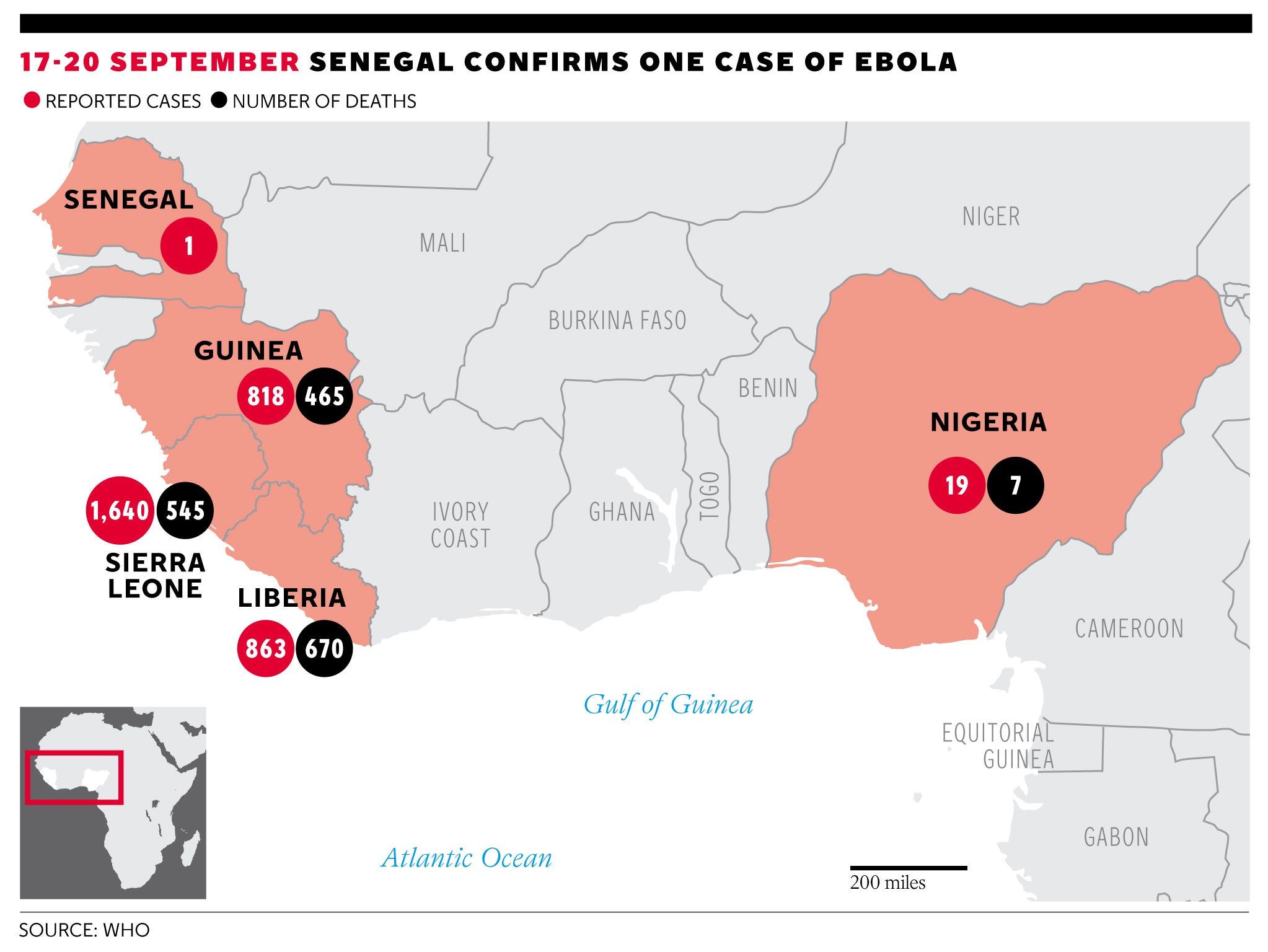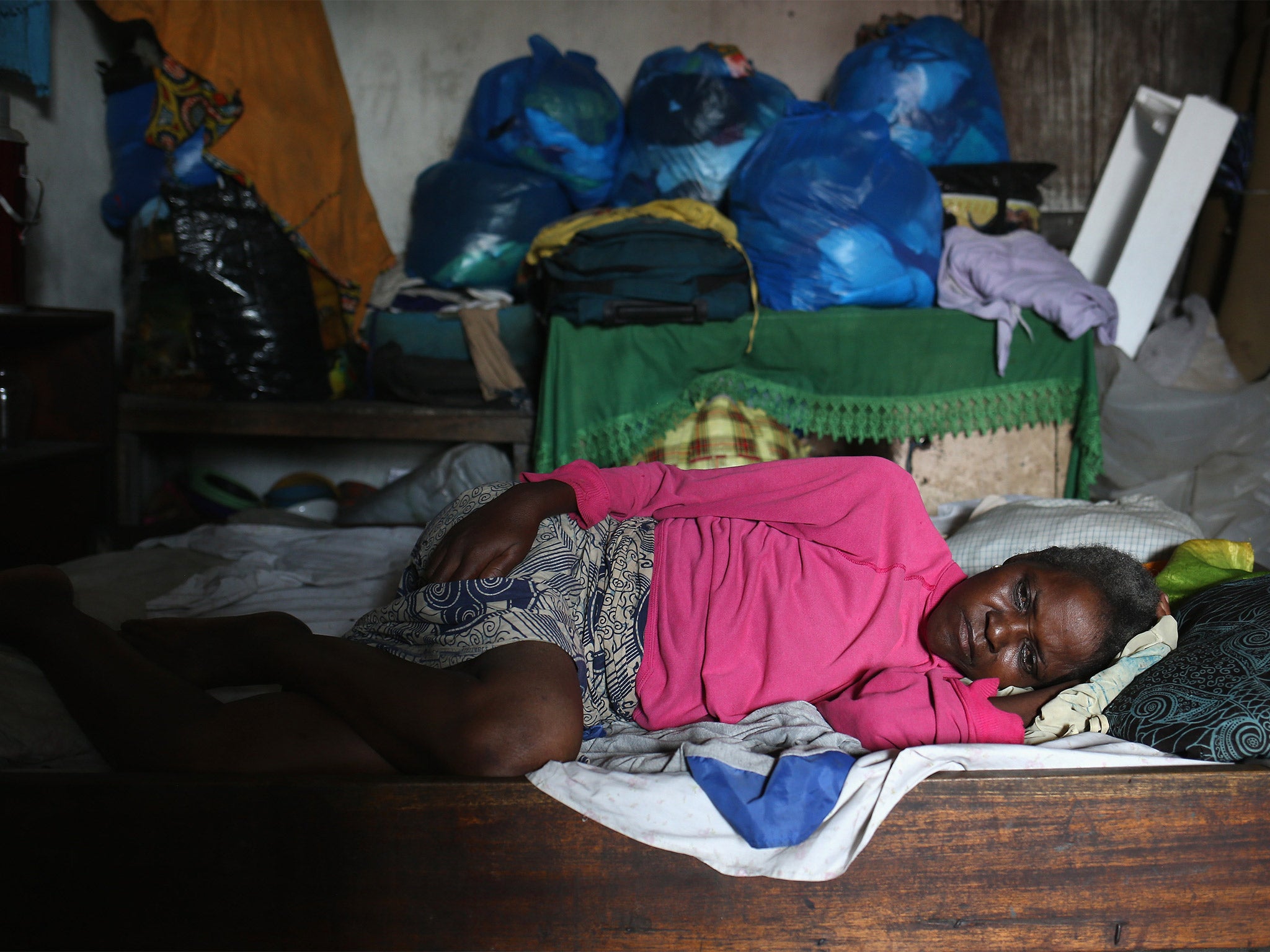Ebola outbreak: Death toll passes 3,000 as WHO warns numbers are 'vastly underestimated'
The disease has killed people in five African countries and is spreading

Your support helps us to tell the story
From reproductive rights to climate change to Big Tech, The Independent is on the ground when the story is developing. Whether it's investigating the financials of Elon Musk's pro-Trump PAC or producing our latest documentary, 'The A Word', which shines a light on the American women fighting for reproductive rights, we know how important it is to parse out the facts from the messaging.
At such a critical moment in US history, we need reporters on the ground. Your donation allows us to keep sending journalists to speak to both sides of the story.
The Independent is trusted by Americans across the entire political spectrum. And unlike many other quality news outlets, we choose not to lock Americans out of our reporting and analysis with paywalls. We believe quality journalism should be available to everyone, paid for by those who can afford it.
Your support makes all the difference.The confirmed death toll from the Ebola outbreak has passed 3,000 as the World Health Organisation (WHO) warns that the available figures “vastly underestimate the true scale of the epidemic”.
In its latest situation report on the virus, the agency said 3,133 deaths had been reported in total, mainly from the worst-hit West African countries of Guinea, Liberia and Sierra Leone, and cases are growing “exponentially”.
Ebola is spreading and has also caused several deaths in Nigeria, been reported in Senegal and is edging towards the border of the Côte d'Ivoire.
In the Democratic Republic of the Congo, thousands of miles away from the disease hotspots, there is also a “separate, unrelated outbreak of Ebola” that has killed more than 40 people.
It is believed to be a different strain of the viral haemorrhagic fever ravaging the other side of the continent.
A spokesperson for WHO warned that the epidemic is showing no sign of slowing, killing an estimated 71 per cent of people infected as the search for a cure continues.
“These figures, which are far greater than those from all previous Ebola outbreaks combined, are known by WHO to vastly underestimate the true scale of the epidemic,” a spokesperson said.
“The Ebola epidemic ravaging parts of West Africa is the most severe acute public health emergency seen in modern times.

“Never before in recorded history has a biosafety level four pathogen infected so many people so quickly, over such a broad geographical area, for so long.”
More than 200 health workers in the three worst-affected countries have been killed and 375 infected.
Care systems have begun to buckle under the pressure of the Ebola outbreak, with hospitals either overflowing or closed to stop its spread as agencies struggle to staff treatment centres.
A WHO situation report said the number of beds for patients is “grossly and visibly inadequate” and the deteriorating situation is making good clinical care for any illness increasingly difficult.
“The current situation is so dire that, in several areas that include capital cities, many common diseases and health conditions are barely being managed at all,” a spokesperson said.

The World Bank has pledged a further $170 million (£105 million) to help affected countries contain Ebola, bringing the total funding to $400 million (£246 million).
Speaking at the UN General Assembly on Thursday, Barack Obama said not enough was being done to combat the “horrific disease”.
“We need to be honest with ourselves,” he said. “It’s not enough.”
Ebola has no known cure and following a conference of 200 experts from around the world earlier this month, convalescent blood and plasma therapies are being tested as possible treatments.
Convalescent therapy was first used for a young woman infected with Ebola in the Democratic Republic of Congo (then Zaire) in 1976 when the virus first emerged.
She was treated with plasma from a person who survived the closely-related Marburg virus but died within days.
During the 1995 Ebola outbreak in Kikwit, Democratic Republic of Congo, blood collected from recovered patients was administered to eight sufferers, of whom seven recovered.
One of the American doctors infected while in Monrovia, Liberia, received blood from a recovered patient and fully recovered, and another US doctor was given a plasma transfusion.
Both have recovered, although it was impossible to tell whether it was due to the convalescent therapy, experimental medicine – one took the drug ZMapp and another TKM-EBV – or supportive care.
Join our commenting forum
Join thought-provoking conversations, follow other Independent readers and see their replies
Comments